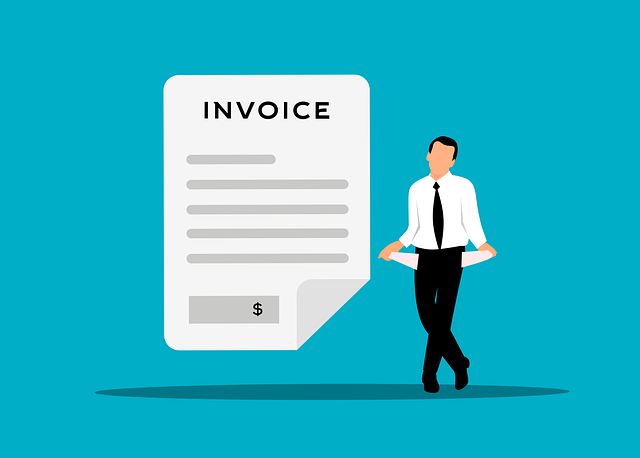Debt restructuring for individuals in South Africa provides a strategic path to financial freedom by renegotiating debt terms with creditors. It involves analyzing financial situations, understanding the National Credit Act (NCA), and engaging licensed debt practitioners to create compliant repayment plans. Post-restructuring, successful money management through budgeting, savings, and timely bill payments leads to improved credit scores and long-term financial stability. Real-life success stories highlight the transformative power of taking control over finances and preventing future debt accumulation.
Overwhelmed by debt? You’re not alone. Many South Africans struggle under the weight of financial obligations. However, debt restructuring for individuals offers a path to financial freedom. This comprehensive guide navigates the complexities of debt restructuring in South Africa, providing insights on every step of the process. From understanding your financial situation and exploring various restructuring options to legal considerations and building sustainable futures, we empower you to take control and reclaim your financial well-being.
- Understanding Debt Restructuring: A Comprehensive Guide for South Africans
- Assessing Your Financial Situation: The Initial Step Towards Freedom
- Exploring Debt Restructuring Options: Repayment Plans and Strategies
- Legal Considerations: Protecting Yourself During the Process
- Building a Sustainable Future: Post-Restructuring Financial Management
- Real-Life Success Stories: Lessons from South Africans Who Overcame Debt
Understanding Debt Restructuring: A Comprehensive Guide for South Africans

Debt restructuring is a powerful tool for South Africans struggling under the weight of debt. It’s not just about getting a lower interest rate; it’s a comprehensive strategy to manage and ultimately pay off debts more effectively. By restructuring, individuals can negotiate new terms with creditors, often including lower monthly payments, extended repayment periods, or even a write-off of a portion of the debt. This process requires careful planning and understanding of one’s financial situation.
A key aspect of debt restructuring is communication. South Africans should initiate conversations with their lenders, explaining their current challenges and exploring options available under the National Credit Act. Various debt counseling agencies offer guidance, acting as intermediaries between individuals and creditors to negotiate terms that suit the borrower’s needs. This approach allows for a more manageable financial path towards freedom from debt.
Assessing Your Financial Situation: The Initial Step Towards Freedom

Assessing your financial situation is the crucial first step on your journey to financial freedom through debt restructuring for individuals in South Africa. It’s here where you gain a clear understanding of your monetary obligations and resources, empowering you to make informed decisions about your debt. Start by listing all your debts, including loan amounts, interest rates, and monthly payments. This provides a comprehensive overview, allowing you to identify areas that may require restructuring.
Consider your current income and expenses as well. Evaluate if your income covers your basic needs and leaves room for savings or if most of it is allocated towards debt repayment. Understanding this dynamic will help determine the feasibility of restructuring options and guide you in negotiating with creditors. Remember, a thorough financial assessment forms the foundation for strategic planning in managing and reducing your debt burden effectively.
Exploring Debt Restructuring Options: Repayment Plans and Strategies

For individuals burdened by debt in South Africa, exploring debt restructuring options is a pivotal first step towards financial freedom. This process involves examining various repayment plans and strategies tailored to specific circumstances. Debt restructuring isn’t about evading responsibilities but rather creating a manageable path to settle debts effectively. It allows borrowers to negotiate with creditors for more favourable terms, such as lower interest rates, extended payment periods or even debt consolidation into a single, more affordable loan.
Repayment plans can range from structured arrangements where individuals pay off debts in equal instalments over an agreed period, to flexible strategies that align with changing income patterns and financial goals. Some popular options include debt settlement agreements, where creditors agree to accept a percentage of the total debt as full settlement, and debt management plans, which involve consolidation into one manageable payment made to a third-party administrator who then distributes funds to creditors based on agreed terms.
Legal Considerations: Protecting Yourself During the Process

When considering debt restructuring in South Africa, it’s crucial to understand the legal framework that protects both individuals and creditors. This process involves intricate regulations designed to ensure fairness and transparency. As an individual, seeking professional guidance from a licensed debt practitioner is your first step towards navigating these legal considerations. They are empowered to assist you in formulating a proposal that aligns with the National Credit Act (NCA), offering a structured path to managing and ultimately paying off your debts.
The NCA provides a framework for debt restructuring, including provisions for debt mediation and agreements. By involving a qualified practitioner, you can ensure that all communications and documentation are conducted within legal boundaries, safeguarding your rights as a debtor. This approach allows for a more manageable repayment plan, potentially lowering interest rates and extending the repayment period, thereby making it feasible to emerge from debt with minimal long-term financial strain.
Building a Sustainable Future: Post-Restructuring Financial Management

After successfully navigating the process of debt restructuring, individuals in South Africa can begin to build a more sustainable financial future. This involves creating and adhering to a realistic budget that balances income and expenses, prioritizing savings, and consistently paying bills on time. Building an emergency fund is crucial to mitigate unexpected costs, ensuring financial security and preventing a return to debt.
Additionally, consulting with financial advisors or credit counseling agencies can provide valuable insights into managing money effectively. These professionals offer guidance on investing, asset building, and long-term financial goals, empowering individuals to take control of their economic well-being. Through diligent financial management post-restructuring, South Africans can gradually improve their credit score, access better loan terms, and achieve true financial freedom.
Real-Life Success Stories: Lessons from South Africans Who Overcame Debt

Many South Africans have successfully navigated their way out of debt, serving as inspiring examples for others struggling with financial burdens. These real-life success stories offer valuable lessons and insights into the journey of debt restructuring. From personal experiences, we learn that taking control and making informed decisions are pivotal steps towards financial freedom.
Individids who once faced overwhelming debt have now achieved stability and even prosperity. They share their narratives, emphasizing the importance of understanding one’s spending habits, prioritizing payments, and seeking professional guidance when necessary. These stories highlight the fact that debt restructuring is not just about repaying debts but also learning financial management skills to prevent future debt accumulation.
Debt restructuring offers South Africans a powerful tool to break free from financial obligations and build a more secure future. By understanding your options, assessing your unique situation, and taking proactive steps, you can navigate this process with confidence. With the right strategies and legal protections in place, individuals can achieve financial freedom, learn valuable lessons, and share their success stories as inspiration for others facing similar challenges. Embrace the first step towards liberation and discover how debt restructuring can transform your monetary landscape.

